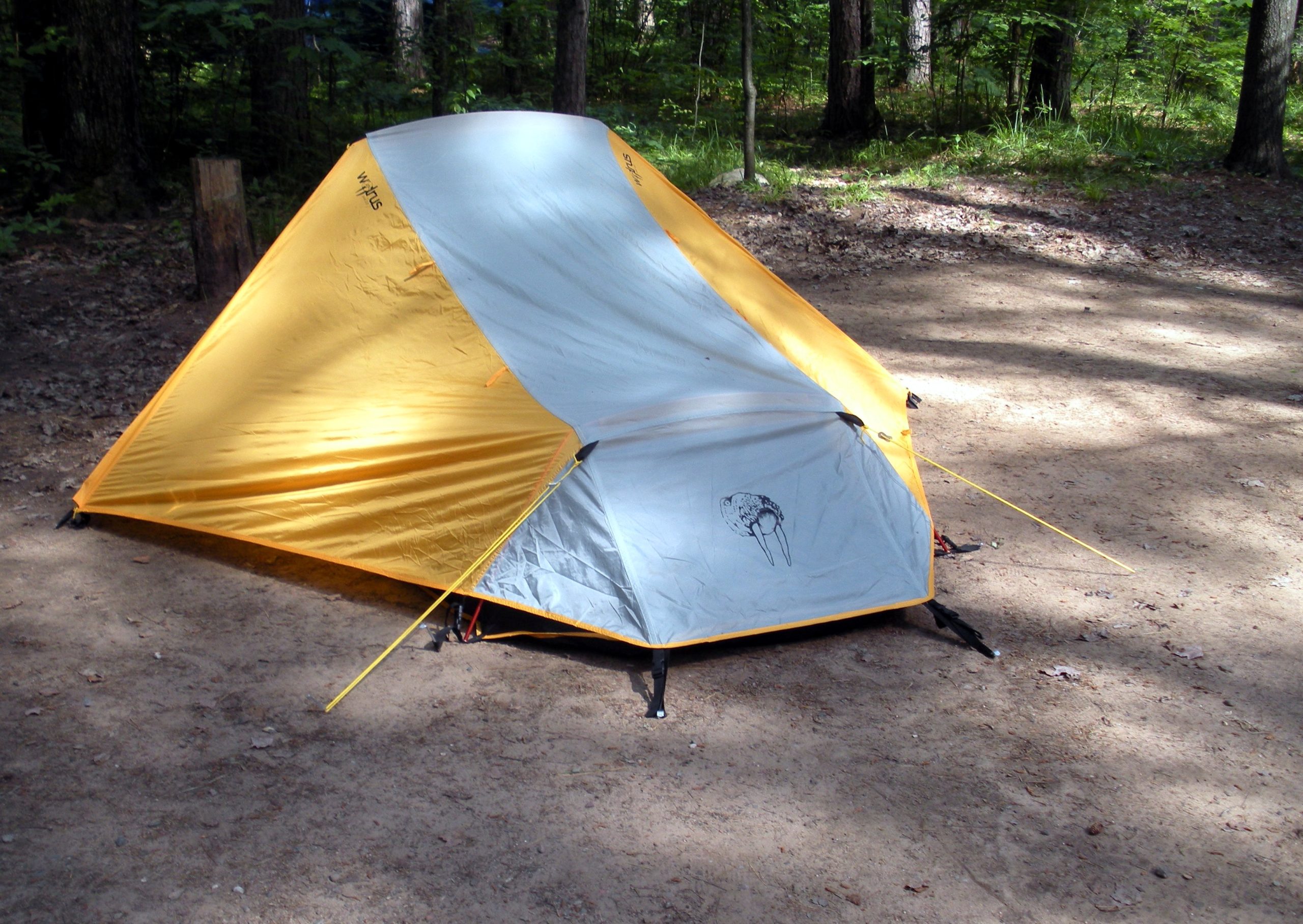Backpacking tents are an essential piece of equipment for anyone who loves to spend time outdoors. They provide a safe and secure shelter, no matter the weather or terrain.
But with so many different types of tents on the market, it can be difficult to decide which one is right for you. One important factor to consider when choosing a tent is its weight; lightweight tents are much easier to transport than heavier models. So, how much should a backpacking tent weigh?
The answer depends on several factors, including the size of the tent and the number of people it can accommodate. If you’re going solo and only need space for one person, then a lightweight tent that weighs between two and three pounds is ideal.
This type of tent is often called an ultralight or ultra-minimalist model and is designed with minimal features in order to keep the weight down. These tents are great for short trips, as they don’t take up much space in your backpack. However, they may not be suitable for longer trips or more extreme weather conditions due to their lack of features such as rainflys or extra poles.
For two or more people travelling together, a backpacking tent that weighs between four and six pounds is usually ideal. This type of tent usually has enough room for two people plus some gear and will generally have some additional features such as rainflys or extra poles that will help protect you from the elements during your trip. These tents are also lightweight enough that they won’t weigh your pack down too much but still provide enough protection from the elements for extended backpacking trips.
For larger groups, a slightly heavier model may be necessary; these tents can weigh anywhere from seven to 11 pounds depending on their size and features. These tents are ideal if you have multiple people travelling together since they offer more room and protection from the elements than smaller models do. However, these types of tents can be quite heavy so make sure to factor this into your overall packing list before setting off on your journey.
Conclusion:
When choosing a backpacking tent, it’s important to consider its weight; lighter models are easier to transport but may not offer all the features necessary for longer trips or extreme weather conditions. For solo travellers looking for an ultralight model, something between two and three pounds should suffice; two-person tents usually weigh between four and six pounds while larger group tents can range from seven up to 11 pounds.
8 Related Question Answers Found
Backpacking is an incredibly popular and versatile activity, allowing individuals to explore the outdoors and experience nature. However, one of the most important considerations for any backpacking trip is how much weight you should be carrying in your bag. The Right Weight – The weight of your backpack depends on a variety of factors, including the type of terrain you will be navigating, your physical fitness level, and the amount of gear and supplies you need to bring.
Backpacking is a great way to get out and explore the wilderness, but it’s essential to be prepared for any situation. One of the most important aspects of preparing for a backpacking trip is to make sure you have the right gear and that your pack is not too heavy. When packing for a backpacking trip, it’s important to be mindful of the weight of your pack.
Backpacking tents are an essential item for any outdoor enthusiast. When it comes to choosing a backpacking tent, one of the most important considerations is the weight. A good backpacking tent should be lightweight and easy to carry, but also strong and durable enough to withstand different weather conditions.
Backpacking is not just an adventure, it’s a lifestyle! Whether you’re a seasoned veteran or a first-time packer, the key to success is having the right gear. But how much should your backpacking gear weigh?
When it comes to backpacking, the base weight of your gear is an important factor to consider. Base weight is the total weight of all your items, excluding consumable items like food and water. Knowing your base weight can help you plan for a successful trip, as it will tell you what kind of trips are feasible with the resources you have.
When it comes to backpacking, one of the most important things to consider is how much weight your backpack should carry. The amount of weight you carry will depend on a variety of factors, such as your strength and fitness level, where you are going and the type of terrain you will be travelling through. The general rule of thumb is that your backpack should weigh no more than 25-30% of your body weight.
When it comes to backpacking, the weight of your gear can make or break your experience. Knowing what your base weight should be is essential for ensuring that you have a comfortable and enjoyable trip. Your base weight is the total weight of all the items you need for a backpacking trip, minus any consumables like food and water.
Backpacking is an enjoyable activity for many people. It allows you to explore the great outdoors and get away from the hustle and bustle of everyday life. But backpacking can also be a challenge if you are carrying too much weight in your bag.

